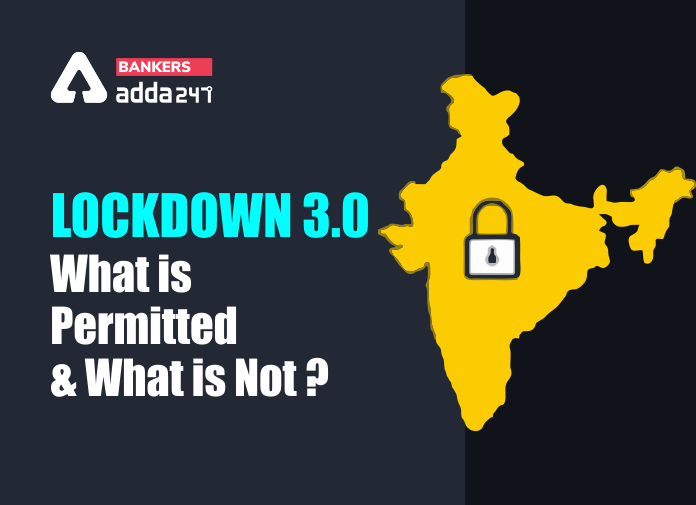Table of Contents
The Ministry of Home Affairs (MHA) Of India has further extended the nationwide lockdown on Friday to prevent the spread of the novel coronavirus by another two weeks or 14 days. This will be the second addition to the already extended lockdown due to end on May 4 as announced by Prime Minister Narendra Modi.
The decision to further extend the lockdown was taken based on risk-profiling of various districts across the country. The MHA has also issued some specific guidelines to regulate different economic activities during this period in the nation.
As per the MHA’s order on Friday, some activities will remain prohibited despite the classification of red, orange and green zones.
- These activities include travel by air, rail, metro and inter-state movement by road. Schools, colleges, training/coaching centres and other educational institutions, hospitality services, including hotels and restaurants; places of large public gatherings, such as cinema halls, malls, gymnasiums, sports complexes etc; social, political, cultural and other kinds of gatherings; and, religious places/ places of worship for public will remain closed and follow the lockdown. Movement of those persons by air, rail and road is allowed for select purposes, and for purposes as permitted by MHA.
- Movement of all individuals, for all nonessential activities, shall remain strictly prohibited between 7 pm to 7 am.
- Irrespective of the zones, persons above 65 years of age, persons with co-morbidities, pregnant women, and children below the age of 10 years, shall stay at home, except for meeting essential requirements and for health purposes
- Out-Patient Departments (OPDs) and Medical clinics will be permitted to operate in all the zones, with social distancing norms and other safety precautions; however, these facilties will not be permitted within the Containment Zones.
The government has allowed certain activities in orange zones as well, apart from the ones permitted in red zones.
- As per the guidelines, Taxis and cab aggregators will be allowed to operate only with one driver and one passenger per car in orange zones.
- Further, the inter-district movement of individuals in orange zones will also be allowed for permitted activities.
Also Read,
| List of Presidents | List of Prime Ministers | Largest State of India | Governers of RBI |
| Chief Election Commissioner of India |
Make in India | Fundamental Rights | What is PMJDY? |
Other Activities Guidelines
- The other industrial activities permitted are manufacturing units of essential goods, including drugs, pharmaceuticals, medical devices, their raw material and intermediates will be allowed.
- Production units, which require continuous process, and their supply chain are allowed to operate.
- Manufacturing of IT hardware are allowed to operate.
- Jute industry with staggered shifts and social distancing are allowed to operate
- Manufacturing units of packaging material are allowed to operate.
- Construction activities in urban areas have been limited to in-situ construction are allowed to operate
- Shops in urban areas, for non-essential goods, are not allowed in malls, markets and market complexes but all standalone (single) shops, neighborhood (colony) shops and shops in residential complexes are permitted to remain open in urban areas, without any distinction of essential and non-essential commodities.
- ECommerce activities, in the Red Zones, are permitted only in respect of essential goods. Private offices can operate with upto 33% strength as per requirement, with the remaining persons working from home.
Click Here to Register for Bank Exams 2020 Preparation Material
Practice With,



 IBPS Final Result 2025 Coming Out Tomorr...
IBPS Final Result 2025 Coming Out Tomorr...
 Simple Tips to Avoid Common Mistakes In ...
Simple Tips to Avoid Common Mistakes In ...
 Important Topics & Shortcuts for IDB...
Important Topics & Shortcuts for IDB...







